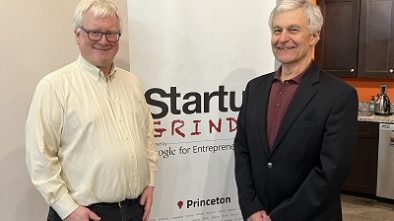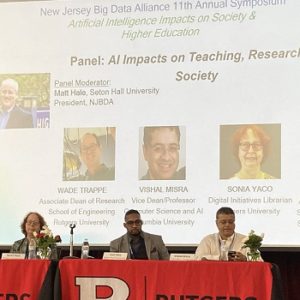Opinion: Academia and the New World of Work
By Bob Donnelly
Advances in technology/AI are changing the nature of work, but academia is still living in the past, educating students for jobs that were.
College graduates these days are struggling to find jobs that no longer exist, but were abundant when their parents graduated.
Additionally, companies are investing millions in digitizing their operations to improve profitability, while displacing employees in the process.
Whether it’s being reflected in the growing number of self-checkout options, online shopping, or automated fast-food outlets, the nature of work is changing dramatically along with the demand for humans needed to do it.
Any repetitive activity is being considered for automation and humanoid robots are doing what people used to do. Airborne drones are delivering packages. Telemedicine is replacing doctor and hospital visits, and diagnostics are available on your smart phone.
While students who have majored in IT-related subjects at prestigious engineering-science-related universities like MIT, Stevens, and others, are being offered high paying jobs, they are in the minority of college graduates. The job landscape for many current and recent graduates is shrinking and the competition for remaining jobs is complicated by all those who are being displaced by technology/AI competing with them for employment with a variety of work experiences that they don’t possess.
Many graduates these days are taking jobs that have nothing to do with what they majored in just to get a job. This causes them to enter into a career of unfulfilling jobs and insecure financial futures with the possibility that whatever job they have can be automated out of existence.
What needs to be done by New Jersey colleges and universities to help students become more prepared to succeed in the new world of work is to develop courses on personal branding to help them identify their internal skill set and persona.
This will then enable students to create their digital personal brand profile that can be easily shared on the internet with prospective employers and for other opportunities of interest.
Resume’s are passe’ in the virtual world we live in today. They are unemotional duplicates of each other that recruiters no longer want to review.
Recruiters today are interested in Zoom or Skype interviews, where they can see and listen to candidates explain their unique value propositions and respond to questions to evaluate their “fit” with their organization’s culture, and respective job opportunities.
I also advise my students to convert their out-of-date resume’s to their own websites because today if anyone wants to know more about you they just Google your name and can review your profile on your website. Additionally, I advise my students to also develop their LinkedIn profile, as LinkedIn is the platform for business and business-related connections. It is also the platform for networks of like-minded professionals and another source for future opportunities.
Lastly, for anyone who wants to survive and thrive for the balance of their career, and more importantly for their life after work, it is imperative that they develop and embellish their personal brand to participate in the new world of work.
Since careers will continue to be complicated by the perpetual advances in technology/AI, academia needs to realize that the jobs of the past and the educational credentials required for those jobs are no longer valid and have to change as rapidly as the new world of work is evolving.
————————————————————-
Robert M. Donnelly is an author, educator, and brand builder for businesses and individuals, as well as a mentor in branding for the NJ technology startup industry. He can be reached at: rmdonnelly@aol.com




